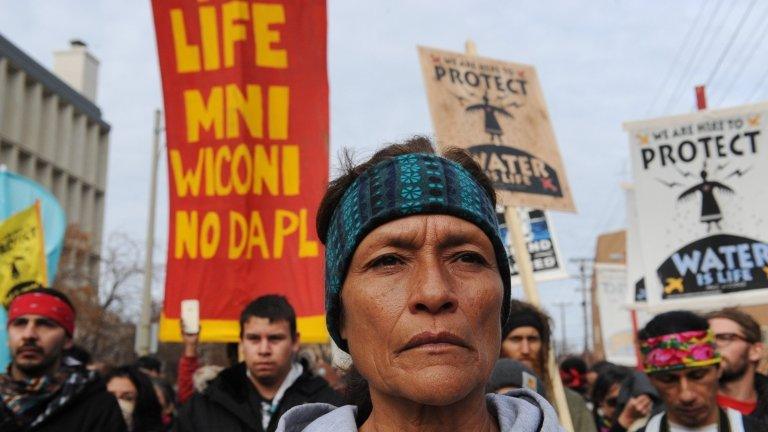Standing Rock protest: Companies attack Dakota Pipeline ruling
- Published
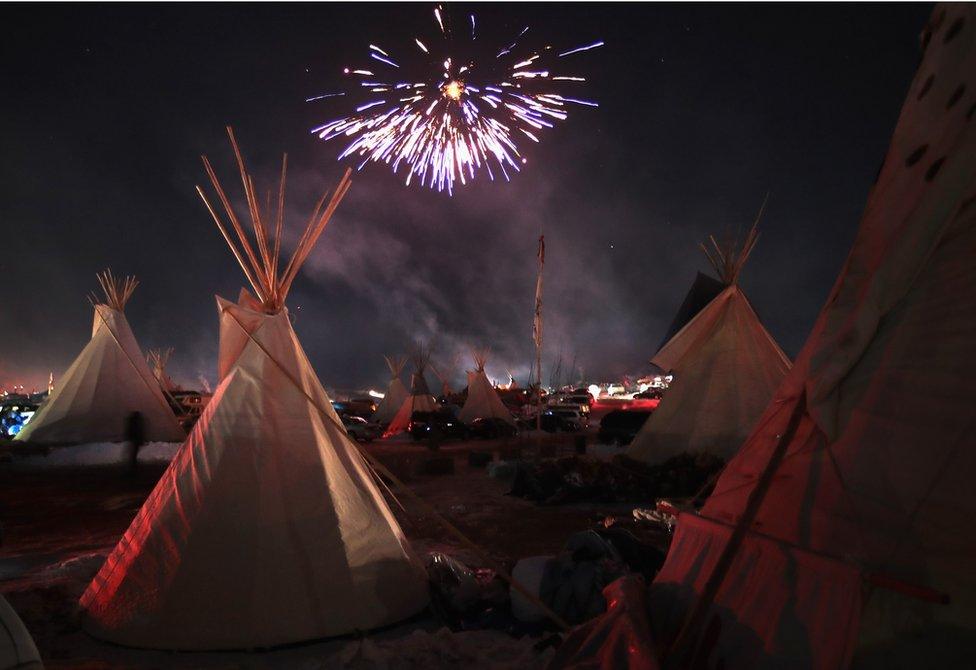
A Native American tribe has been celebrating the decision
Two firms behind a controversial oil pipeline in the US have accused the White House of political interference for failing to approve its completion.
The US Army said it would not authorise the final section of the Dakota Access Pipeline to allow alternative routes to be considered.
The decision is a win for the Standing Rock Sioux Tribe who have protested against the pipeline for months.
But the next US president, Donald Trump, says he supports the project.
The multi-billion, 1,200-mile (1,900 km) pipeline, crossing four states, is intended to slash the costs of transferring crude. It is nearly complete except for a section planned to run under Lake Oahe, a reservoir on the Missouri River.
The Standing Rock Sioux Tribe and their supporters fear it will contaminate drinking water and run over sacred burial sites.
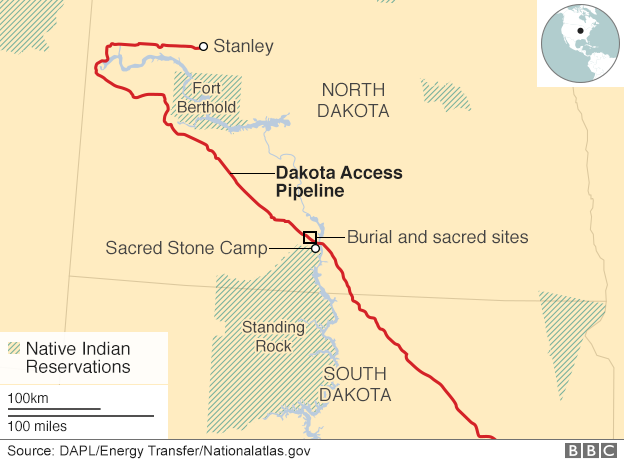
Months of protests, on federal land, have seen clashes between the demonstrators and law enforcement.
The final stretch required a permit from federal authorities but on Sunday, the US Army Corps of Engineers refused to grant it so it could undertake "an environmental impact statement to look at possible alternative routes".
The two firms involved, Energy Transfer Partners and Sunoco Logistics, attacked the move as a "purely political action".
Noting that the project already has court approval, the companies accused the White House of abandoning the rule of law "in favour of currying favour with a narrow and extreme political constituency".

The battle continues: By James Cook, BBC North America Correspondent
The Battle of Standing Rock is far from over.
A memorandum from the US Army Corps of Engineers might strongly suggest that the pipeline will be re-routed but it does not actually say that will happen.
The BBC's James Cook visits the Standing Rock camps
It talks of "consideration" and "discussion" of other locations and of a "more robust analysis of alternatives" before permission "is granted for the Dakota Access Pipeline to cross the Missouri river on Corps land".
The Corps also acknowledges that the project has been ruled lawful by the courts.
Plus it hardly needs pointing out that Barack Obama, whom the protestors praise for this decision, will soon be succeeded by Donald Trump, a supporter of the project who has previously invested in Energy Transfer Partners and may still hold stock in a related firm, Phillips 66.
It would be a very big surprise indeed were Mr Trump not to try to reverse a move by the Corps of Engineers which one Republican in North Dakota said sent a "very chilling signal" for the future of infrastructure in the US.

Both companies added they "fully expect to complete construction of the pipeline without any additional rerouting in and around Lake Oahe".
Republican North Dakotan politicians too have piled in, with Governor Jack Dalrymple calling the decision a "serious mistake"
In contrast there has been jubilation among protesters, who have numbered in their thousands, enduring bitter cold at encampments.
Adan Bearcub, a Native American and military veteran, said "this is the best news that I've heard forever - best news for Native people, native country, the whole United States - all the people. Water is so precious."

How social media saw it
The US army's decision has delighted high-profile opponents of the pipeline, such as actress Shailene Woodley, who was arrested at a protest in October.

Singer Alicia Keys shared a picture and a famous Native American quote.

Police have been criticised for using excessive force during the protests, something Green Party presidential candidate Jill Stein appeared to allude to.

But there were also warnings the victory could be short-lived.
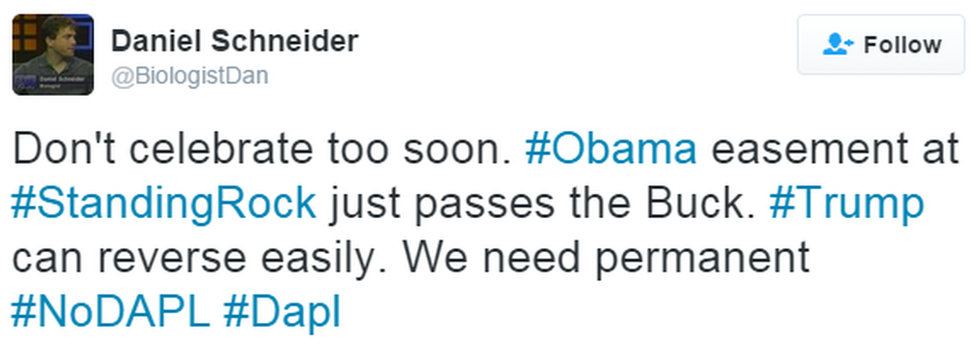

- Published21 November 2016
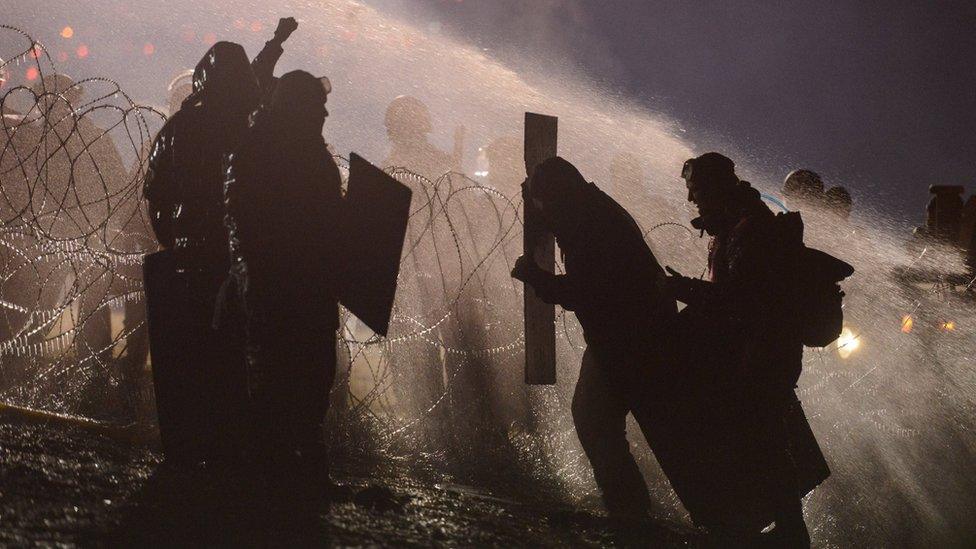
- Published15 November 2016
